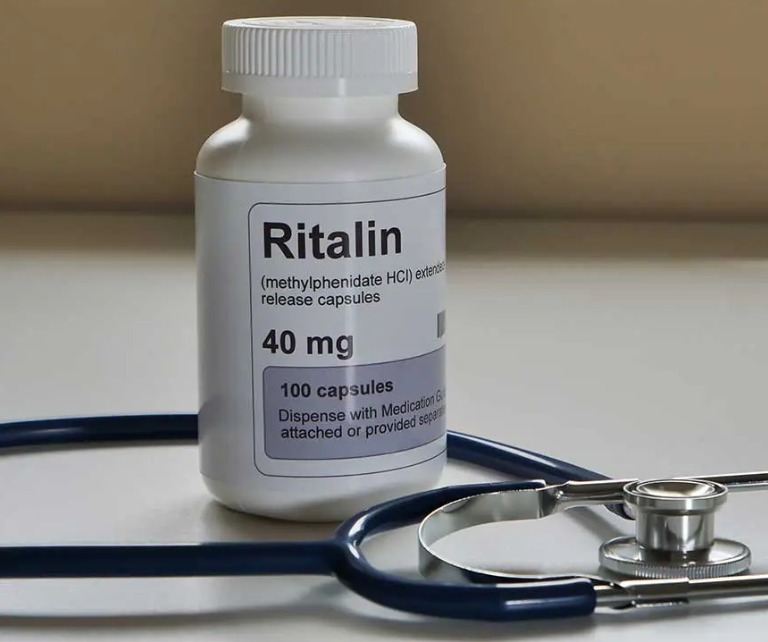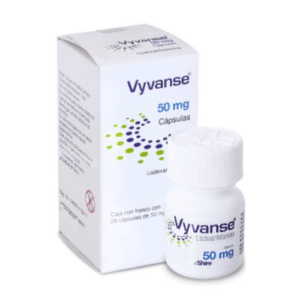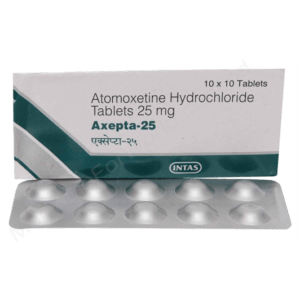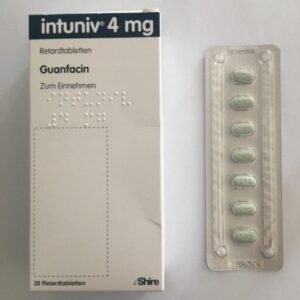Ritalin, known generically as Methylphenidate, is a central nervous system stimulant primarily prescribed for the treatment of attention-deficit hyperactivity disorder (ADHD) and narcolepsy. Methylphenidate 40 mg is a higher dosage strength intended for individuals who require a more potent therapeutic effect to manage their ADHD symptoms. This comprehensive guide aims to provide an in-depth exploration of Methylphenidate 40 mg, covering its mechanism of action, therapeutic uses, recommended dosage, potential side effects, precautions, and important considerations for safe and effective use.
Understanding Ritalin (Methylphenidate) 40 mg: Methylphenidate belongs to a class of medications known as central nervous system stimulants. It works by increasing the levels of dopamine and norepinephrine, two neurotransmitters involved in the regulation of attention, focus, and impulse control. By enhancing neurotransmitter activity in the brain, Methylphenidate helps alleviate the core symptoms of ADHD, including inattention, hyperactivity, and impulsivity. The 40 mg dosage strength provides a higher concentration of the active ingredient, offering greater therapeutic efficacy for individuals with more severe ADHD symptoms.
Uses and Indications: Methylphenidate 40 mg is primarily indicated for the treatment of attention-deficit hyperactivity disorder (ADHD), a neurodevelopmental disorder characterized by persistent patterns of inattention, hyperactivity, and impulsivity that significantly impair daily functioning. ADHD affects individuals of all ages, with symptoms often manifesting in childhood and persisting into adulthood. Methylphenidate is also used off-label to manage symptoms of narcolepsy, a sleep disorder characterized by excessive daytime sleepiness, sudden onset of sleep, and cataplexy.
Efficacy and Benefits: Clinical studies have demonstrated the efficacy of Methylphenidate 40 mg in reducing ADHD symptoms and improving functional outcomes in children, adolescents, and adults. The higher dosage strength allows for greater symptom control, particularly in individuals with more severe ADHD symptoms or those who have not responded adequately to lower doses or non-pharmacological interventions. Methylphenidate typically begins to take effect within 30 to 60 minutes after administration, with peak effects occurring within 1 to 3 hours. The duration of action varies depending on the formulation but generally lasts for several hours, necessitating multiple daily doses to maintain symptom control throughout the day.
Dosage and Administration: The recommended dosage of Methylphenidate 40 mg is determined based on individual response, tolerability, and severity of ADHD symptoms. It is typically administered orally in the form of extended-release capsules or tablets to provide sustained symptom control throughout the day. The dosage may be titrated gradually based on clinical response and tolerance, with regular monitoring by a healthcare professional to optimize therapeutic outcomes and minimize the risk of adverse effects. It is important to follow the prescribed dosage and administration instructions provided by the healthcare provider to achieve optimal symptom control while minimizing the risk of medication misuse or diversion.
Side Effects and Precautions: While Methylphenidate is generally well-tolerated, it can cause certain side effects, especially at higher dosage strengths such as Methylphenidate 40 mg. Common side effects include insomnia, decreased appetite, weight loss, irritability, and headache. These effects are usually mild to moderate in intensity and transient, resolving spontaneously with continued use or dose adjustment. However, more serious adverse reactions such as cardiovascular events, psychiatric symptoms, and growth suppression are rare but require immediate medical attention. It is important to use Methylphenidate with caution in individuals with certain pre-existing medical conditions such as cardiovascular disease, hypertension, glaucoma, and history of substance abuse. Additionally, Methylphenidate may interact with certain medications, including monoamine oxidase inhibitors (MAOIs), serotonin reuptake inhibitors (SSRIs), and tricyclic antidepressants (TCAs), leading to potentially serious drug interactions and adverse effects.
Conclusion: Methylphenidate 40 mg is a valuable medication for the treatment of attention-deficit hyperactivity disorder (ADHD), providing significant relief from symptoms of inattention, hyperactivity, and impulsivity. With its potent central nervous system stimulant properties and higher dosage strength, Methylphenidate offers enhanced symptom control for individuals with more severe ADHD symptoms or those who have not responded adequately to lower doses. However, it is important to use Methylphenidate responsibly, under the guidance of a healthcare professional, and to be aware of potential side effects, precautions, and drug interactions. By understanding the therapeutic uses, dosage recommendations, and safety considerations associated with Methylphenidate 40 mg, individuals with ADHD can make informed decisions regarding their treatment options and achieve better management of their symptoms.





Reviews
There are no reviews yet.